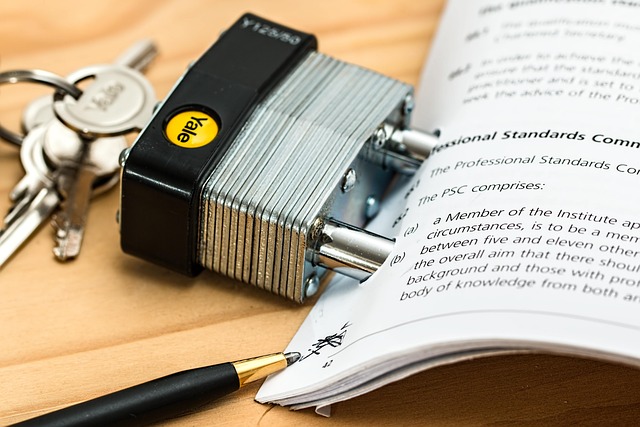Child support enforcement legal aid is essential for ensuring fair financial backing for children post-separation or divorce. Specialized attorneys help navigate complex calculations, protect rights, and guide clients through legal processes, fostering a just system. Legal aid demystifies the process, offering tailored advice, fair calculations, and timely payments, creating stability for children. Non-profit organizations provide free or low-cost services, advocating for fair agreements and educating parents on their responsibilities, leading to positive outcomes and financial security for minors. Effective communication and documentation are key to successful navigation of this complex landscape. Case studies demonstrate the power of professional legal aid in securing favorable agreements and setting precedents for children's rights advocacy.
Navigating the labyrinthine world of child support systems can be a daunting task for parents, often leading to stress and financial strain. This article provides a comprehensive guide on managing this complex process with the help of legal expertise. We explore ‘child support enforcement’ from a legal perspective, offering insights into navigating complexities, leveraging legal aid, and effective communication strategies. Through case studies, we highlight successful legal interventions, while also furnishing resources and support networks to streamline the journey. Understanding these aspects can empower parents to advocate for their rights effectively.
- Understanding Child Support Enforcement: A Legal Perspective
- Navigating the Complexities of Child Support Systems
- The Role of Legal Aid in Assisting Parents
- Strategies for Effective Communication with Legal Professionals
- Case Studies: Success Stories of Legal Intervention
- Resources and Support Networks for Efficient Navigation
Understanding Child Support Enforcement: A Legal Perspective

Child support enforcement is a critical aspect of family law, ensuring that children receive financial support from both parents after a separation or divorce. From a legal perspective, it involves a complex interplay of statutes, regulations, and case law aimed at fair and consistent outcomes. Legal aid in child support enforcement plays a pivotal role in protecting the rights of children and their custodial parents.
Attorneys specializing in family law help navigate the intricate web of child support calculations, which consider factors such as parental income, custody arrangements, and the financial needs of the child. They guide clients through legal processes, ensuring compliance with support orders and addressing any modifications or enforcement actions required over time. Access to legal expertise empowers parents to understand their obligations and rights, fostering a fairer system for all involved.
Navigating the Complexities of Child Support Systems

Navigating the complex landscape of child support systems can be a daunting task for many parents, especially those without legal expertise. These systems, designed to ensure financial stability for children after a separation or divorce, are often shrouded in jargon and intricate regulations. Understanding one’s rights and obligations within these processes is essential to avoid misunderstandings and potential legal pitfalls.
Legal aid plays a pivotal role in demystifying child support enforcement by providing guidance tailored to individual circumstances. With the help of qualified professionals, parents can navigate the complexities, ensuring fair and accurate calculations, timely payments, and adherence to legal requirements. This support is crucial in fostering a healthy financial environment for children, allowing them to thrive without the added burden of uncertainty.
The Role of Legal Aid in Assisting Parents

Many parents, especially those facing financial difficulties or navigating complex custody arrangements, find themselves overwhelmed by the process of child support enforcement. This is where legal aid plays a pivotal role in assisting and guiding them through this challenging landscape. Non-profit legal aid organizations offer invaluable services, ensuring that all parties involved have access to legal representation and education.
By providing free or low-cost legal assistance, these organizations empower parents to understand their rights and responsibilities regarding child support. Their expertise helps demystify the often complex legal process, enabling parents to make informed decisions. Legal aid attorneys can explain the various factors influencing support calculations, advocate for fair agreements, and assist in navigating any potential disputes, ultimately facilitating a smoother transition for both parents and children.
Strategies for Effective Communication with Legal Professionals

Navigating the complex landscape of child support enforcement can be daunting, especially for those seeking legal aid. Effective communication with legal professionals is paramount to ensuring a successful outcome. Firstly, gather all relevant documents and information pertaining to the case, such as court orders, financial statements, and any historical records. Organize these materials clearly and succinctly to facilitate efficient case review.
Open lines of communication are key. Clearly articulate your concerns, goals, and expectations during initial consultations. Don’t hesitate to ask questions; legal experts should be willing to explain procedures, potential outcomes, and the scope of their services in terms easily understood. Regular updates and proactive dialogue can help manage expectations and ensure compliance with legal processes, ultimately enhancing the effectiveness of child support enforcement efforts.
Case Studies: Success Stories of Legal Intervention

In many cases, navigating the complex web of child support enforcement can be overwhelming for parents, especially those seeking legal aid. However, successful interventions by legal experts have led to positive outcomes, demonstrating the significance of professional guidance in these matters. These case studies highlight the impact of well-informed legal strategies, where clients have secured fair agreements, ensuring their children’s financial security and overall well-being.
One such instance involves a single parent who, with the help of a dedicated lawyer, successfully challenged an unfair child support order. Through thorough research and legal maneuvering, they were able to alter the arrangement, resulting in a more sustainable and equitable financial plan. This success story not only provides relief to the parent but also sets a precedent for similar cases, emphasizing the power of legal expertise in advocating for children’s rights and interests.
Resources and Support Networks for Efficient Navigation

Navigating the complex landscape of child support enforcement can be daunting for parents, but a robust network of resources and support systems offers crucial assistance. Legal aid organizations play a pivotal role in providing guidance and representation to ensure fair and efficient navigation through this process. These organizations often offer free or low-cost services, including legal advice, document preparation, and representation in court proceedings related to child support. By leveraging these resources, parents can gain access to specialized knowledge and expertise, empowering them to protect their rights and secure the best possible outcomes for their children.
Support networks also extend beyond legal aid societies, encompassing community-based organizations, government agencies, and non-profit groups dedicated to family support. These entities provide a range of services, from financial assistance and counseling to educational workshops on parental responsibilities and child development. By connecting with these resources, parents can gain valuable insights, build resilience, and access the necessary tools to effectively manage child support obligations and maintain stable family dynamics.






